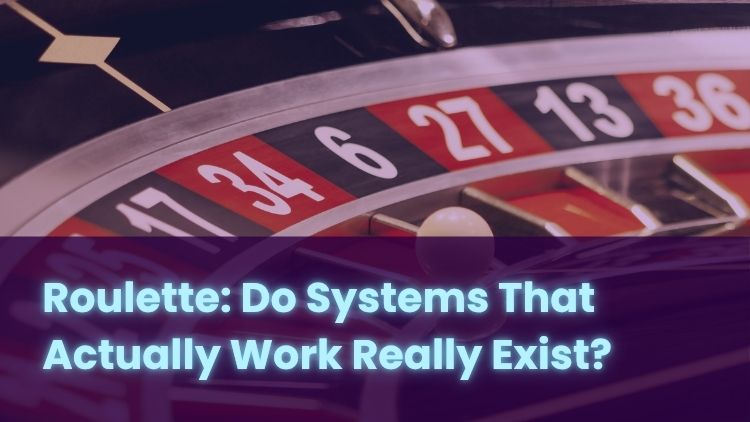
Roulette is one of the most recognisable casino games, both online and in land-based venues across the UK. Its spinning wheel and numbered layout have made it a long-standing favourite for many who enjoy games of chance. Over time, countless betting systems have been suggested — each claiming to offer structure or a smarter way to play.
This guide explains what these systems actually do, how roulette works from a mathematical point of view, and why no method can change its random nature. By understanding the facts, you’ll be better equipped to make sense of what really influences outcomes.
What Do People Mean by a Roulette System?
A roulette system is simply a plan for how you choose your bets and stakes. Some people use one to stay consistent in their play.
Some common examples include:
- Increasing or decreasing bets after potential wins or losses.
- Covering certain numbers or wheel sections in each round.
These methods aim to manage your spending, but they do not alter the odds of the game.
In European roulette, which is standard in most UK casinos, the wheel has 37 numbered pockets (0–36). The single green zero gives the casino an inbuilt mathematical edge known as the house edge. Every spin is random and independent, meaning previous results have no effect on the next outcome.
Are There Any Roulette Systems That Actually Work?
Roulette outcomes are entirely based on chance. Each spin produces a random result with fixed probabilities that do not change.
In European roulette:
- A single-number bet has a 1 in 37 chance of winning (around 2.70%).
- Red, black, odd, and even bets have 18 winning numbers out of 37, or roughly 48.65% odds.
The house edge in European roulette is 2.70%, calculated from the difference between the true odds and the payout potential odds.
For example, a single-number win pays 35 to 1, but the true odds are 36 to 1. Over time, this small difference ensures the casino gains a small return.
No system can remove or reverse that mathematical edge. A betting plan might make play feel structured, but it does not change how the game works.
The Truth About Betting Patterns in Roulette
Many players believe “patterns” on the results board can reveal what’s “due” next — for instance, assuming that after several red numbers, black must follow. This is a common misunderstanding known as the gambler’s fallacy.
In reality, each spin is an independent event. The probability of red, black, or any other bet remains the same every time: roughly 48.65% for red or black in European roulette. The wheel does not remember past outcomes, and it does not balance itself.
Spotting possible streaks or repeating numbers can help make the game more interesting to watch, but it doesn’t make the results predictable. Roulette remains random, regardless of past spins or betting sequences.
Why the House Edge Matters in Every Spin
The house edge is what keeps roulette profitable for the casino. It represents the small statistical advantage built into the game’s payout structure.
For European roulette, this edge is 2.70%. For American roulette, which adds an extra green double zero (38 pockets instead of 37), it increases to about 5.26%.
Some versions, such as French roulette, may include special rules like La Partage or En Prison, which can return part of your stake when the ball lands on zero. These rules reduce the house edge slightly on even-money bets, though it still exists.
The key point is that the house edge applies on every spin, no matter what system or stake size you use.
Do Progressive Betting Systems Improve Your Chances?
Progressive systems are popular because they give the illusion of regaining losses through stake adjustments.
The Martingale system, for example, involves doubling your bet after each loss, so that a single win could, in theory, recover all previous bets.
Let’s say you start with £2 on an even-money bet:
£2 → £4 → £8 → £16 → £32 → £64.
After several losses, the amount required for the next spin can become very high, and real casino tables have maximum limits that stop you from continuing indefinitely. Your own funds might also run out before the system “catches up.”
Because each spin remains random, changing stake sizes does not alter your probability of winning. Progressive systems may create structure, but do not change the mathematical edge of the game.
Remember, roulette is a game of chance, so winnings cannot be guaranteed.
How Random Number Generators Affect Online Roulette
In online roulette without a live dealer, the results come from a Random Number Generator (RNG). This is software tested by independent laboratories to ensure that outcomes are random and unpredictable.
When you press “spin,” the RNG produces a number between 0 and 36, corresponding to a pocket on the wheel. UK-licensed operators are required to use RNGs certified under strict standards set by the UK Gambling Commission (UKGC). These checks ensure the same fairness as a physical wheel.
In live dealer roulette, a real wheel determines the outcome, but the same rules and odds apply. Before playing, you can review the game rules and paytable in the help section to better understand the version and possible payouts offered.
Roulette is a random game of chance, so outcomes can’t be predicted. Setting a budget, taking breaks, and using tools like deposit limits on UK-licensed sites can help you stay within your means and make informed choices while playing.
*All values (Bet Levels, Maximum Wins etc.) mentioned in relation to these games are subject to change at any time. Game features mentioned may not be available in some jurisdictions.
**The information provided in this blog is intended for educational purposes and should not be construed as betting advice or a guarantee of success. Always gamble responsibly.
